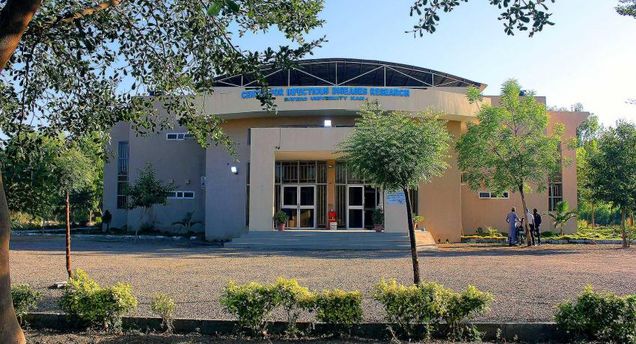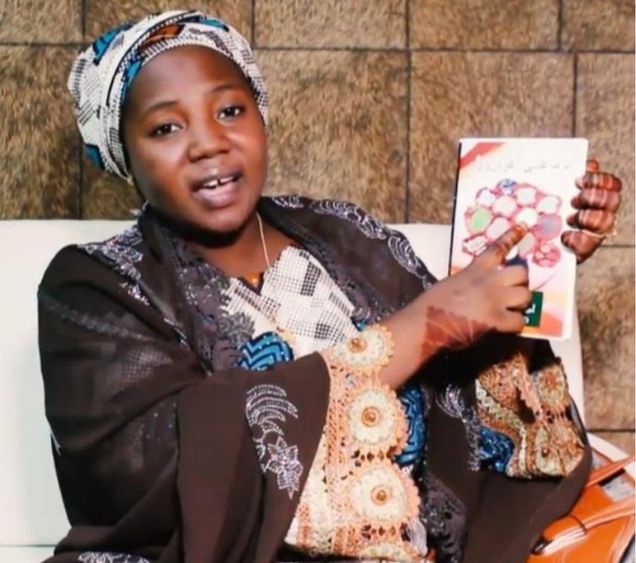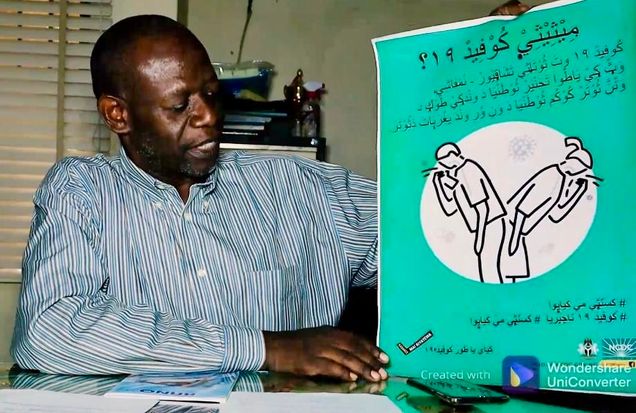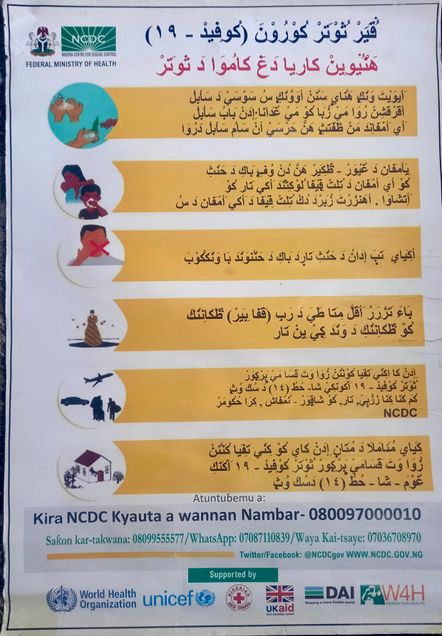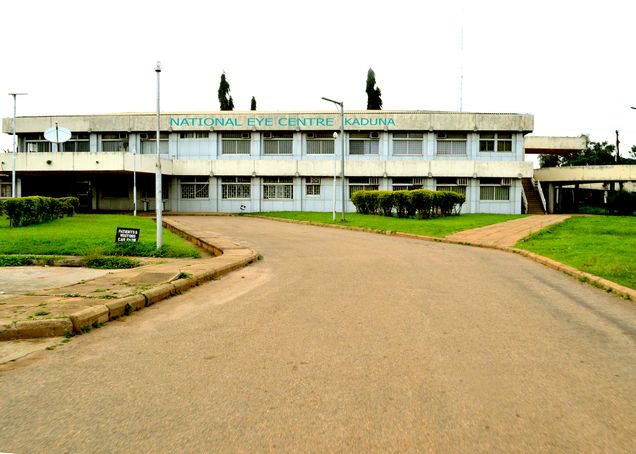Unit 3: Amina Lawal Garba
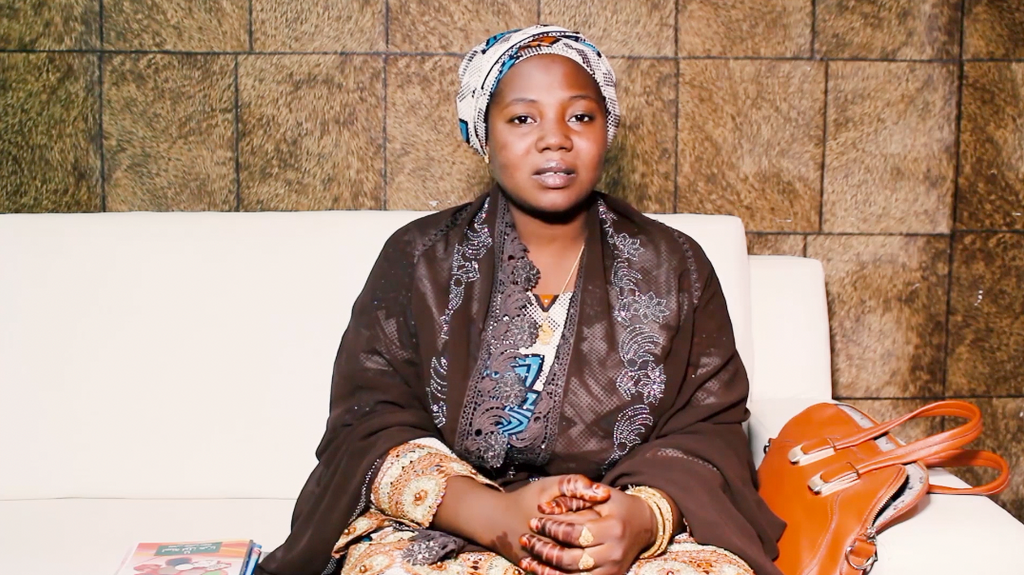
Metadata
| Title | Conversation with Amina Lawal Garba |
| Interviewer | Dr. Mustapha Hashim Kurfi |
| Subject | Amina Lawal Garba’s personal life, how she was inspired to write a book on pharmacology in Hausa Ajami and also some of the challenges surrounding Hausa Ajami and how to solve them. |
| Content | Amina Lawal Garba is a young Ajamist. Born 27 years ago in Kano, she attended her primary and secondary school and then Bayero University, Kano, where she earned a Bachelor of Science with honors in Criminology. Currently, Amina serves in the National Youth Service Corps in the Sociology Department of Ahmadu Bello University in Zaria, Kaduna State. Young Amina’s interest in Hausa Ajami came from multiple sources. First, she was close to her paternal grandfather who was a respected Islamic scholar and introduced her to Hausa Ajami at a very young age. She was further educated by her father, but after his death, Amina became alienated from Hausa Ajami. However, when her mother became ill, this motivated Amina to learn about traditional herbs and pharmacology. Much of that information was written in Hausa in the Latin script (boko), but also in Hausa Ajami. Her prior Ajami knowledge gave her the skills to decipher many of the Ajami manuscripts on traditional healing. It was Amina’s desire to spread knowledge on traditional healing, coupled with her interest in Ajami, that motivated her to write a book on traditional pharmacology and herbal medicines entitled Da Magani a Gonar Yaro, first published in 2017 and revised in 2021. In this video interview, Amina narrates her biography, talks about her interest in Ajami, and extensively discusses her book. She highlights the value of Ajami to society, identifies some challenges in its use and learning, and makes suggestions about countering these. |
| Language | Hausa |
| Script | Hausa Ajami |
| Location | Smart View Multimedia, Fagge Local Government Kano State, Nigeria |
| Pedagogical content/application | Includes relevant linguistic, stylistic, and cultural skills as identified in our assessment guidebook/ ACTFL guidelines |
| Access condition and copyright | These materials are subject to copyright and are distributed under the terms of the Creative Commons Attribution-NonCommercial 4.0 License, which permits non-commercial use, distribution, and reproduction in any medium, provided the original author and source are credited. For use, distribution or reproduction beyond these terms, contact Professor Fallou Ngom (fngom@bu.edu). |
| Contributors | Fallou Ngom, Jennifer Yanco, Mustapha Kurfi, Daivi Rodima-Taylor, Alison Parker, and Frank Antonelli. |
| Required citation information | Fallou Ngom (PI), Jennifer Yanco, Mustapha Kurfi, and Daivi Rodima-Taylor. 2023. “Conversation with Amina Lawal Garba.” https://sites.bu.edu/ria/hausa/hausa-unit-3/ |
Videos
Hausa with English Subtitles
Hausa with Latin Script Subtitles
Community Images
(click on the image for a larger view)
Pedagogical Activities
Glossary
- Amosani: Dandruff
- Basarake: Member of the royal family
- Cikas, ƙalu bale: Challenge, obstacle, problem
- Ciwo: Illness, ailment
- Ela, Ɗaɗewa: Diaper rash, rash
- Gargajiya: Traditional, orthodox
- Gidaje: Houses (singular, gida)
- Hulba: Fenugreek
- Jinya: Nursing, tending to the sick or infirm
- Ƙyasfi: Eczema
- Magani: Medicine, cure
- Maganin turawa: Western medicine
- Mai cin gashin kansa: Independent, autonomous; also non-governmental organization
- Mankaɗe: Shea butter
- Mutuwa, rasuwa: Death, dying
- Rayuwa: Living, existing
- Sa hannu: To sign, endorse, approve
- Sabara: Guiera Senegalensis
- Sabulun salo: Traditional local soap, black soap
- Surace: Medicinal steam treatment
- Tazargade: Artemisia
- Tsuguno: Sitting bath
- Waraka: To heal, get well, get rid of an ailment
- Wasiyya: Last will and testament, a dying person’s last message to their heirs
Notes
- Al’adar mata: “Women’s menstruation.” The word al’adar means tradition in Hausa. When talking about women, it refers to the monthly menstrual cycle. Menstruation is sometimes called baƙo (visitor) because it “visits” women periodically.
- Allah ya ba da lafiya! “May God heal you!” This is the Hausa greeting for a sick person. The phrase reflects the Islamic influence in Hausa society. It is rooted in the belief that only God heals and grants health, no matter how effective a medicine may be.
- Asalin kalmar magani: “The etymology of the term magani.” The Hausa word magani can be traced to the phrase ma gani (we shall see). These are the words that people who are ill or their caregivers say whenever sick people take medicine. Over time, the phrase became a noun referring to the medicine itself ,magani, and has now become part of Hausa everyday language. It is now a generic term that applies to all forms of healing and medicine, including herbal medicine, acupuncture, and spiritual medicine.
- Cuta ba mutuwa ba: “Illness does not mean death.” This is a popular Hausa adage used to console the sick and their family members. It emphasizes that death is not necessarily the result of illness. The Hausa people usually add to this phrase: Da yawa marasa lafiya sun miƙe kuma da yawa masu lafiya sun rasu! (Very often the sick become healed while many who were healthy wake up dead!). This saying reiterates the Hausa belief that death can happen at any given time and to anyone and that one could be sick for decades and remain alive or become completely cured.
- Da magani a gonar yaro: “Medicine exists in a boy’s farm [yet he wanders around looking for it elsewhere].” The Hausa people use this proverb (often omitting the second part) to emphasize that traditional African medicine is useful, common, effective, and affordable. This is also applicable to other aspects of human endeavor. For instance, it can be used in the context when many African nations struggling with economic challenges rush to Western nations (especially their former colonial masters) for aid. Yet, sustainable development and solutions to their challenges can be achieved by ending corruption, mismanagement of local resources, and overreliance on foreign aid. Following this line of thinking, Ms. Amina Lawal Garba named her book Da Magani a Gonar Yaro (What you need to solve your problem is right in front of you.).
- Jiki da sauƙi! “[My] health is improving!” This is the answer that sick people give to people who inquire about their health. Hausa culture (like many African cultures) expects ill people to always say that they are feeling better when asked, no matter how critical the illness may be.
- Jinya ta ƙare: “The nursing is over.” This phrase is used when someone who has been ill for a long period of time dies. It is said mainly to the family members of the deceased to console them. Their response will typically be gaskiya ne (That is true).
- Kallabi sakanin rawuna: “A head tie among turbans.” This Hausa expression describes a woman who stands out by accomplishing things or engaging in activities usually reserved for men. Examples include a woman who becomes an Emir in Hausaland such as Queen Amina of Zaria and Queen Daurama of Daura. The saying can also apply to some female scholars nowadays. For example, Ms. Amina Lawal Garba could be called Kallabi sakanin rawuna because she wrote a book on African traditional medicine using Hausa Ajami that many male Hausa scholars cannot do due to their lack of Hausa Ajami literacy skills.
- Ƙan jiki: “A body that does not heal quickly or a long healing process.” This statement is often used to describe a condition that is difficult to heal. As an example, when Mr. A heals faster than Mr. B, then Mr. B is said to have ƙan jiki. The phrase does not convey any negative feeling towards the sick person, but simply describes the expected long healing process.
- Ya jiki? “How is your health?” This question is used when inquiring about someone’s holistic health. It is the same question that one asks someone with a headache, stomachache, mental illness, emotional stress, and so on. It reflects the Hausa belief that all parts of the human body are interrelated and whatever affects one part affects the entire body.
Exercises:
Comprehension || Writing || Listening / Speaking and Conversation || Cultural Competence
Comprehension: Video
Comprehension: Image
Writing
Listening / Speaking and Conversation
- Mutane biyu su tsaya a matsayin ɗaya maras lafiyi, shi kuma ɗayan a matsayin likita. Sai su yi gaisuwa tare da bayanin irin cutar da take damun wanda ya zo asibitin.
Cultural Competence
- A zaɓi wani abu daga cikin faifan bidiyon, sai a kamanta shi da na garinku ko al’umar ku. A rubuta kamanninsu da bambancin tsakanin su.
